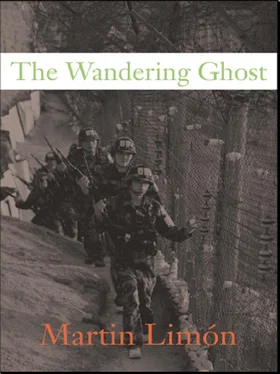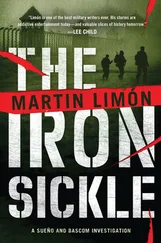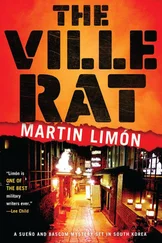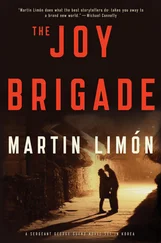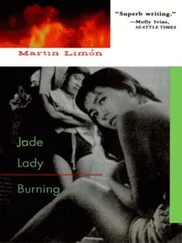Martin Limon - The Wandering Ghost
Здесь есть возможность читать онлайн «Martin Limon - The Wandering Ghost» весь текст электронной книги совершенно бесплатно (целиком полную версию без сокращений). В некоторых случаях можно слушать аудио, скачать через торрент в формате fb2 и присутствует краткое содержание. Жанр: Полицейский детектив, на английском языке. Описание произведения, (предисловие) а так же отзывы посетителей доступны на портале библиотеки ЛибКат.
- Название:The Wandering Ghost
- Автор:
- Жанр:
- Год:неизвестен
- ISBN:нет данных
- Рейтинг книги:4 / 5. Голосов: 1
-
Избранное:Добавить в избранное
- Отзывы:
-
Ваша оценка:
- 80
- 1
- 2
- 3
- 4
- 5
The Wandering Ghost: краткое содержание, описание и аннотация
Предлагаем к чтению аннотацию, описание, краткое содержание или предисловие (зависит от того, что написал сам автор книги «The Wandering Ghost»). Если вы не нашли необходимую информацию о книге — напишите в комментариях, мы постараемся отыскать её.
The Wandering Ghost — читать онлайн бесплатно полную книгу (весь текст) целиком
Ниже представлен текст книги, разбитый по страницам. Система сохранения места последней прочитанной страницы, позволяет с удобством читать онлайн бесплатно книгу «The Wandering Ghost», без необходимости каждый раз заново искать на чём Вы остановились. Поставьте закладку, и сможете в любой момент перейти на страницу, на которой закончили чтение.
Интервал:
Закладка:
To blend in, Ernie and I wore similar jackets. His featured a naked Asian woman being embraced by a fire-breathing dragon. The dates beneath touted his two tours in Vietnam. My jacket featured a map of Korea and the start and end dates of my first tour here. When we’d had them made, Ernie asked me why I didn’t buy something with a little more flare. I’m not sure why I didn’t. A time and a place seemed good enough to me.
OB draft is what the Silver Dragon served; it came from a venerable brewery in Korea that had supposedly been established by Germans just after the turn of the century. The business girl hanging off Ernie’s neck was named Ok-hi. She was tall and buxom and besides the hot pants and halter top wore black leather boots that enveloped her thick calves all the way to the knee. She had a girlfriend and a few minutes later I was introduced to Ji-yon, who called herself Jeannie. Jeannie was slender, willowy compared to full-figured Ok-hi, and her personality was polite and reserved. She told me she was from the southern province of Cholla-namdo. Ernie and I continued to drink the draft Oriental Brewery lager and we bought the girls drinks. They seemed fascinated by us. We were from Seoul, not “Cheap Charlies” like the Division GIs. Ernie winked and said, “Wait until they get to know me better.”
Even amidst the mad swirl of women and booze and rock and roll, I continued to think about the case. I wanted to explain to Ernie that I thought the death of Private Druwood hadn’t happened the way Colonel Alcott and Mr. Bufford said. And I wanted to speculate with him about the various reasons that Jill Matthewson might’ve decided to go AWOL. If we could figure out her motive, maybe that would help us break a lead. But Ernie was too busy with Ok-hi. Instead, I asked Jeannie who booked entertainment in Tongduchon. She was helpful and when the band took a break, Jeannie introduced me to their leader, a young Korean man with straight black hair hanging over his ears. He was surprised that I could speak Korean and after a little hesitation, he gave me the name and address of his booking agent.
Ernie and I put away about a six pack each. Ok-hi suggested that the four of us adjourn to a chop house and have something to eat. Drinking on an empty stomach, the Koreans believe, is bad for the health. Ernie and I hadn’t eaten since breakfast, so we readily agreed. The girls asked us what type of food we wanted. Neither Ernie nor I could tolerate the Miguk-style chicken houses or hamburger joints that infested the bar district. The chow in those joints was routinely horrible and sometimes caused dysentery. We told them we wanted Korean food. The girls left and returned wearing warm coats and the four of us paraded onto the main drag of Tongduchon.
The Division GIs were drunk now. Raucous crowds of them shoved their way from bar to bar: the Oasis Club, the 007 Club, the Players Club, the Kimchee Club. Rock and roll erupted from open double doors and young Korean women stood outside, trying to coax GIs into their establishments.
The narrow walkways were jammed with pedestrians: American GIs, Korean business girls, old ladies in shawls pushing wooden carts laden with bean curd soup, even the occasional uniformed student humping a backpack, trying to make her way home without being molested. Ernie breathed deeply, savoring the aroma of diesel and garlic and stale beer. A smile crossed his chops and I knew what he was thinking. The ville! Life! A beautiful woman clinging to his arm. How could it be better than this?
As we walked, Ok-hi chattered happily, using the combination of broken English and Korean that passes as the lingua franca in every GI village in Korea.
“Ok-hi taaksan ipo. Kujiyo?” Ok-hi’s very pretty. Isn’t she?
“So-so.” Ernie replied.
Ok-hi pinched him. “You number ten GI.”
Number ten: the worst. As opposed to number one: the best.
“Kuenchana,” Ernie replied. It doesn’t matter.
But after we’d passed a few bars, Ernie was no longer listening to Ok-hi. Instead, his eyes began to dart from side to side. Whenever he swerved in the flow of the pedestrian traffic, he glanced back. Surreptitiously. Jeannie walked casually next to me, not noticing what I was noticing. Ernie had spotted someone-or something-behind us. I didn’t swivel my head to look. That would’ve tipped whoever was following us that we were on to him. Instead, I watched Ernie. Over the months we’d worked together, we’d developed hand signals for simple instructions like “danger” or “let’s go” or “you first.” They’d helped in tight situations, but Ernie wasn’t flashing me any signals. And he wasn’t happy. As we wound through the crowded alleys of Tongduchon, Ernie seemed to become more agitated. I checked beneath my armpit, making sure my. 45 was snug in its holster. It was.
All I could do now was watch Ernie, pretend nothing was amiss, and be prepared to act.
When American GIs first arrive in Korea, they receive something commonly referred to as their “Kimchee Orientation.” It is a series of briefings given by NCOs and officers appointed by the 8th Army commander. The orientation room features a huge wooden map of Korea. The jagged line of the Demilitarized Zone slashes across the waist of the country and a falling line of circular targets indicates the locations of the major cities: Seoul, Taejon, Taegu, and Pusan. Unit patches the size of dinner plates-the 8th Army red-and-white cloverleaf, the 2nd Division Indianhead patch-are used to graphically demonstrate to young soldiers that 8th Army covers Seoul and the rear areas, while the 2nd Infantry Division is stationed right up along the edge of the DMZ. After the geography lesson, a medic is brought in and the young GIs are treated to a series of films showing men suffering from advanced stages of venereal disease. Most of the young GIs are frightened so badly that they vow never to venture off base into the ville. This vow usually lasts about twenty-four hours. Then a representative from the Judge Advocate General’s Office takes the stage to inform the GIs that their Constitutionally guaranteed rights have been totally abrogated by the U.S. ROK Status of Forces Agreement. The only reaction this usually engenders is the occasional yawn. Finally, the post chaplain takes over and leads the men in a nondenominational prayer. After the amen, the men are eligible to be issued a pass to leave the compound and mingle in Korean society. After two nights in the ville, they will consider themselves experts on Korean culture. This despite the fact that Korean culture is over 4,000 years old and is based on Confucian and Buddhist traditions that are, in many cases, diametrically opposed to Western traditions.
Once the GIs hit the ville, all hell breaks loose. These barely educated teenage Americans feel they can lord it over the Koreans. And with their abundant spending money, for the most part, they can. Until they go too far. Then the Koreans fight back, and that’s when the Korean National Police and the American MPs step in.
When I first arrived in Korea, I assumed that 8th Army had somebody monitoring the clash of cultures that occurs when obnoxious American teenagers are thrust willy-nilly into an ancient society. The more time I spent here, the more I realized that 8th Army and the American government were not only not concerned with this phenomenon, they were unaware that it even existed. In fact, when I occasionally mentioned this clash of cultures back at 8th Army headquarters, I was looked at as if I were mad. As long as the troops returned to the compound every day, still able to perform their duties, that’s all the U.S. Army cared about.
It was left for those of us in law enforcement to pick up the pieces. And it was left to those of us of a more reflective nature to marvel at the endless cornucopia of heartbreak and joy that was being churned out nightly on the streets of the GI village of Tongduchon.
Читать дальшеИнтервал:
Закладка:
Похожие книги на «The Wandering Ghost»
Представляем Вашему вниманию похожие книги на «The Wandering Ghost» списком для выбора. Мы отобрали схожую по названию и смыслу литературу в надежде предоставить читателям больше вариантов отыскать новые, интересные, ещё непрочитанные произведения.
Обсуждение, отзывы о книге «The Wandering Ghost» и просто собственные мнения читателей. Оставьте ваши комментарии, напишите, что Вы думаете о произведении, его смысле или главных героях. Укажите что конкретно понравилось, а что нет, и почему Вы так считаете.
